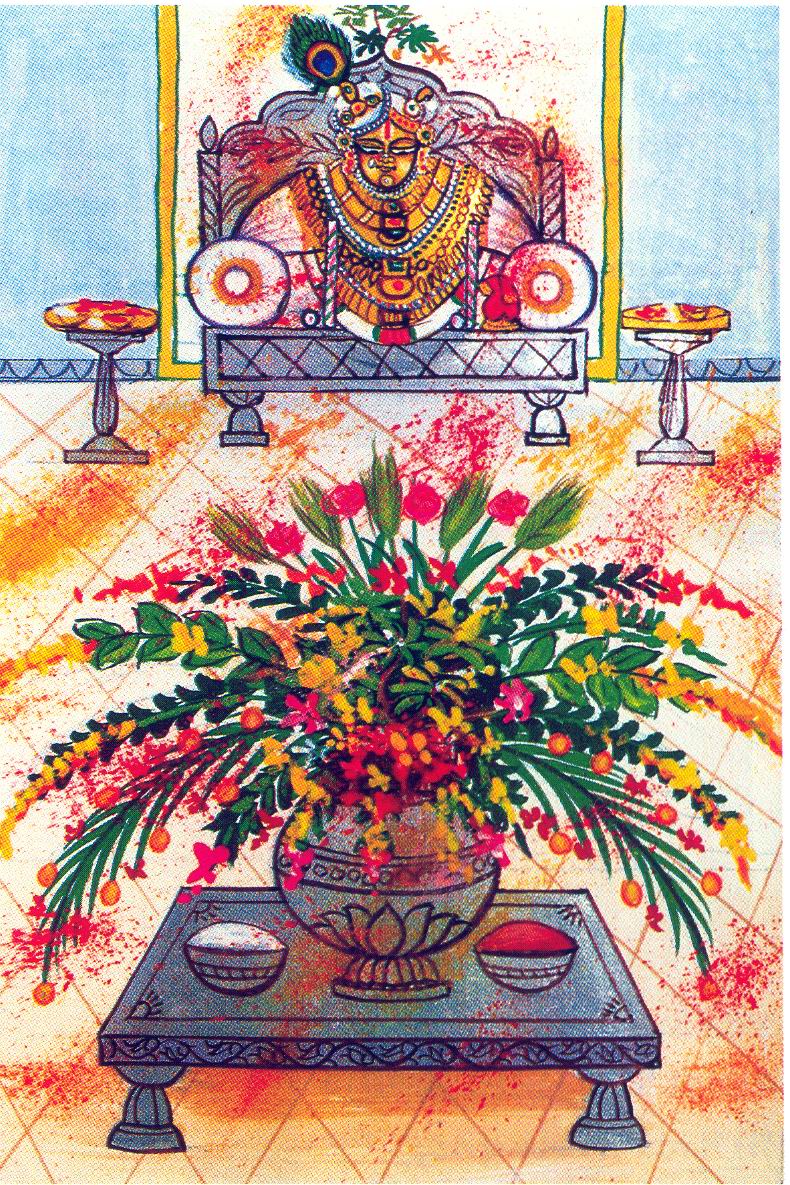
Dear Vaishnav!
Now onwards in Ezine, the sections of book Chatursloki written by Shri Shyammanoharji will be provided. This book is written on Shri Vallabhacharya’s Chatursloki granth of Shodash Granth.
Through the practice of dharma, we attempt to direct our lives towards some accomplishment, through the pursuit of wealth, people try to fulfill desires. It may be asked, “why do we attempt to fulfill desires?” It is difficult to answer, the most we can say is that the fulfillment of desire is for some sort of pleasure. If is asked “why is there pleasure upon the fulfillment of desire?” we can simply say that if desires are not fulfilled, there is pain. The fulfilled of a desired achievement of pleasure is the mundane goal while liberation, which avoids hankering after material means, just craves ultimate freedom.
From this we see that the pursuit of Artha [wealth] and Kama [pleasure] are related to the mundane and physical body while Dharma and liberation are connected to the soul and the divine. Let us examine the nature of these four pursuits more closely.
1. DHARMA: In this context, the true meaning of Dharma is not related strictly to the Karmakanda, the Vedic scripture that deals with proper action, the way towards religious righteousness, or even towards some general dry faith or feeling of a group of people. Dharma is an actually way of life from which behavior, thought, feelings, and actions are mixed together into an experience.
2. ARTHA: Artha means wealth, but it should not be understood as simply meaning coins and notes; it encompasses many other things. It includes all the different types of wealth we bring into our lives for our worldly and spiritual pleasures.
3. KAMA: In the same light Kama, which can be roughly translsted as desire or pleasure cannot merely be limited to sexual activities. What we perceive through form, taste, smell, touch well as any subject that comes into contact with our eyes, tongue, nose or ear, that experience of pleasure is considered to be kama. It is not only experienced throughout the senses of knowledge, but throughout our senses of action. The wish for pleasure is kama.
4. MONKSHA: every individual desires liberation in one form or another. Some people are theistic others atheistic, some believe in a soul others not, some have faith in a God others have no need for such conception.
- Bhagwad swaroop (form of the deity) seats according to the feelings of the person performing seva..
- All the Vrats etc (fasts etc) should be done keeping in mind the affection towards God..
